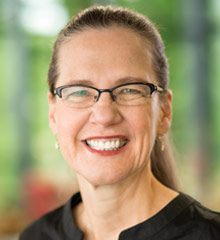Commentary on 2 Corinthians 4:13—5:1
Paul depicts the life of faith in the Messiah in the starkest of terms.
It involves dying in order to live. We are always “carrying in the body the death of Jesus” — allowing all that is false within to die — so that Jesus’ life might be made visible in our bodies (2 Corinthians 4:10).
And it involves a life defined by dying. As we live, we are always “being given up to death for Jesus’ sake” (2 Corinthians 4:11). As we share in Jesus’ sufferings — in his non-violent resistance to the powers that crucified him — Jesus’ life is made visible in the exigencies of our mortal existence. Throughout, as death happens in us, life is manifest for others (2 Corinthians 4:12).
But how does this paradoxical “dying to live” and “living by dying” actually take place in our everyday lives? Why is it life-giving for others? And what sustains us in the midst of all this death?
Trusting and speaking
In 5:13, Paul quotes a Hallel psalm. Read during Passover, Hallel psalms depict righteous sufferers who rely solely on God’s mercy and righteousness, even while they cry out in their affliction (see Psalms 113-118). Paul says that we too have the same “Spirit of faith” recorded in Scripture: “I kept my faith, even when I said, ‘I was greatly afflicted’” (Psalm 116:10). We too can trust in the God who enables us to speak (and thereby have agency) even when in a deplorable state (2 Corinthians 4:13).
What grounds our faith or trust is knowing that “the one who raised the Lord Jesus will raise us” (2 Corinthians 4:14). Such knowing, however, is not based on what we perceive with our senses or deduce through logic. Rather, it emerges precisely as we place our confidence not in ourselves — or any other finite person or power for that matter — but in the one who raises the dead and brings life out of nothing (see also 2 Corinthians 1:9).
And it does not just have to do with an afterlife. It has to do with relying on God now amid whatever may be happening to us — trusting that the one who has rescued us in the past will continue to rescue us (see also 2 Corinthians 1:10).
Moreover, this hope is not just a personal hope. The one who raised the Lord Jesus not only raises us but will bring us together with others into his presence (2 Corinthians 4:14). As Paul makes clear in 1 Corinthians, “as all die in Adam, so all will be made alive in the Messiah” (1 Corinthians 15:22). Indeed, being raised from the dead in the Messiah is not about having our souls (our psyches) live on in perpetuity. Our “living souls” (psuchen zosan), which are focused on securing their own survival (often at others’ expense), also die in the first Adam. When raised in the “life-giving Spirit” (pneuma zopoioun) of the last Adam, they are transformed in his overflowing life, freely for others (1 Corinthians 15:45).
Faith, then, is not just about believing a doctrine (say, about the resurrection) that guarantees our ego’s immortal existence. It does not even have to do with transcendent experiences or out of body states, whether in this life or the next. Even these can just be about securing our egos (see also 2 Corinthians 12:1-10). And it definitely does not justify our judging others or transgressing their boundaries to get them to submit to us or to some finite idea or opinion we might hold, even if it is about the gospel, Jesus, or the Spirit (see also 2 Corinthians 11:1-21).
Rather, faith has to do with grace — God’s gift freely given for all — which always shifts our focus from self-interest to the interests of others. As this grace extends to more and more people through us, it increases thanksgiving, the “Eucharist” of lives that also overflow with this grace (2 Corinthians 4:15).
Living by faith, not sight
How does all this actually take place in our everyday lives? For one thing, faith does not immune us from suffering. Yet, through faith, as our “outer” self (all that is ephemeral about us, including wealth, status, or even our physical or mental state, etc.) is threatened or “wasting away,” our “inner” self (our inexpressible core) is being “renewed daily” (2 Corinthians 4:16; see also Romans 12:1-2). In describing this, Paul uses the distinction between “outer” and “inner” selves not to depict a split between mind and body or between spiritual and material layers of existence but rather to describe how — amid all that we undergo — the Spirit “produces” (katergazetai) within us a hyperbolic excess of an eternal weight of glory (2 Corinthians 4:17; see also Romans 5:1-5).
What he is depicting here is a distinctive way of perceiving and responding to life, one that involves attending to what is “unseen” (which is eternal) precisely amid what is “seen” (which is temporary). Now what is “unseen” here is literally unseen: nothing we perceive. It is only perceived by being mediated through what is “seen”: something we perceive. Elsewhere Paul uses unique verbs to describe such mediated vision. In 2 Corinthians 3:18 he speaks about “seeing and reflecting” (katoptrizo) the glory of the Lord as if in a mirror. And in 2 Corinthians 4:4 he speaks of “seeing and shining” (augazo) the light of the gospel of the glory of Christ.
Perceiving all that happens to us in this way gives us courage. It frees us to acknowledge that the “spaces” in which we live — our “earthly tents” — are not ultimately secure. The physical spaces we identify with — bodies, homes, churches, temples, even cities and nations — can all be destroyed. Even the social spaces that define us — our spheres of influence, our interpersonal and societal networks, and even our cultures — are not completely in our control (2 Corinthians 5:1a).
But amid the insecurity of these flimsy “tents,” we find we have a building (oikodome) from God, a house not made by human hands (2 Corinthians 5:1b). What the Spirit creates within and among us through faith is nothing other than God’s overflowing, freely given reign of justice and mercy — making our lives a roomy and expansive domain of grace.


June 10, 2018